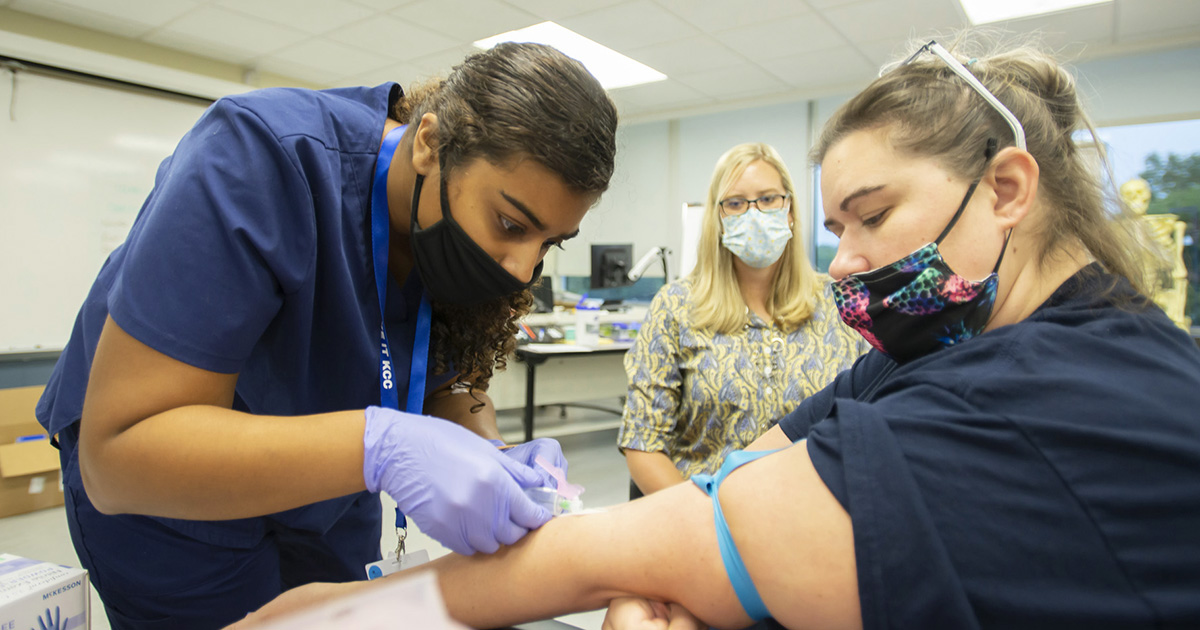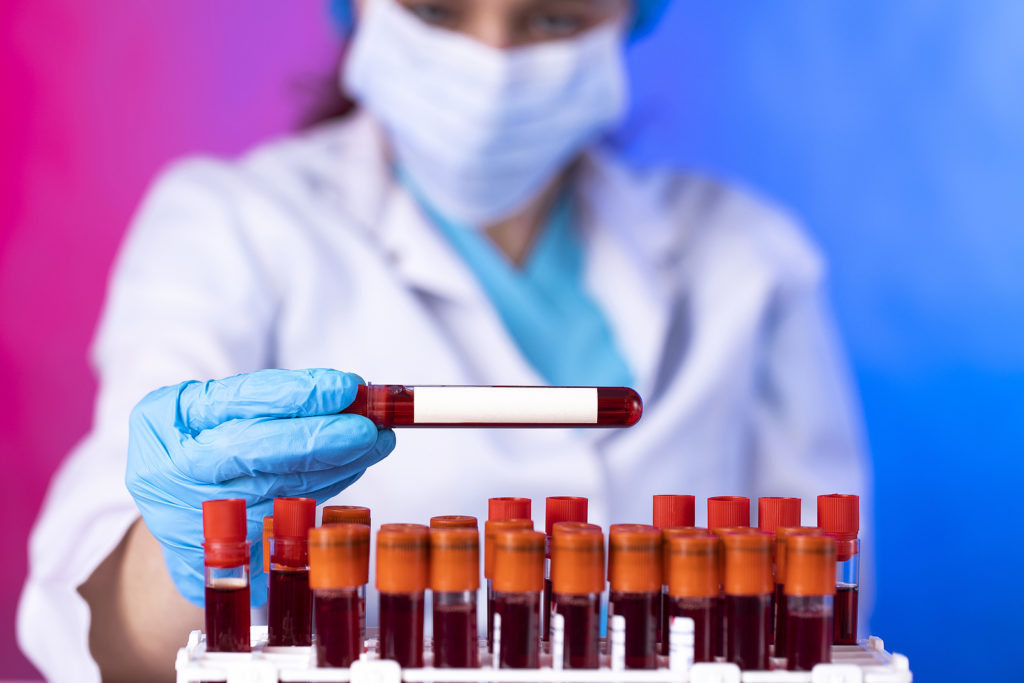The Path to Accreditation: Comprehending the Phlebotomy Educating Program Trip and Its Value
As you consider the path to qualification in phlebotomy, it's crucial to comprehend the role you'll play in healthcare. Your training will certainly cover crucial abilities, from blood collection techniques to patient interaction.

The Duty of Phlebotomists in Health Care
Phlebotomists play a vital role in the health care system, serving as the vital link in between clients and crucial diagnostic screening. You'll do blood draws, making sure samples are gathered properly and safely. Your proficiency aids in diagnosing clinical conditions, keeping an eye on wellness, and directing therapy decisions.
In your everyday communications, you'll require to establish count on with people, making them feel comfortable throughout what might be a difficult experience. You are accountable for labeling and taking care of samples very carefully to stop contamination or errors, which might impact examination outcomes.
Beyond this, you'll frequently function alongside physicians and registered nurses, connecting essential details concerning people' problems. By understanding your abilities, you contribute meaningfully to patient care, making you a crucial part of the medical group.
Review of Phlebotomy Training Programs
When discovering phlebotomy training programs, you'll locate numerous kinds created to fit different schedules and learning designs. Each program assists you establish vital abilities like blood collection and person communication. Comprehending these options is vital to picking the ideal path for your career.
Sorts Of Training Programs
Several sorts of training programs are readily available for those seeking to end up being skilled in phlebotomy. You can choose from certification programs, which normally last a few months and concentrate on important skills. There are likewise diploma programs that offer an even more detailed education, often lasting approximately a year. If you're searching for a much deeper understanding, an associate degree in a relevant field may be the ideal fit. Online training courses provide adaptability for those balancing job or household dedications, allowing you to study at your very own pace. In addition, some medical facilities and facilities provide on-the-job training programs, giving useful experience while you discover. Whatever course you select, each program intends to equip you with the needed skills for a successful phlebotomy job.

Secret Skills Developed
Grasping phlebotomy requires a collection of crucial abilities that are developed via complete training programs. In addition, interaction skills are basic; you'll need to connect with individuals, clarify treatments, and put them at convenience. Each of these skills is important for your success as a qualified phlebotomist, making you an important property in any type of medical care setting.
Trick Components of a Phlebotomy Program
In a phlebotomy training course, you'll concentrate on crucial topics that prepared for your future career. You'll take part in hands-on training that permits you to apply what you've found out in real-world settings. Both the curriculum and sensible experience are important for your success as a phlebotomist.
Curriculum Overview
While pursuing a phlebotomy training program, you'll run into a core curriculum created to outfit you with basic skills and expertise. Phlebotomy Training Course. This educational program usually consists of makeup and physiology, focusing on the blood circulation system and comprehending blood elements. You'll additionally find out about different types of blood collection techniques, including venipuncture and capillary leak methods
Furthermore, infection control and security protocols are crucial elements, guaranteeing you understand how to maintain a clean and sterile atmosphere. You'll study patient interaction, stressing interaction and empathy, which are crucial for easing person stress and anxiety.
Hands-On Training Experience
Getting hands-on experience is an essential part of your phlebotomy training program. This useful training allows you to use what you've found out in a real-world setting, enhancing your abilities and confidence. You'll exercise venipuncture methods, learn just how to deal with various kinds of specimens, and obtain acquainted with the devices used in the area. Under the advice of skilled teachers, you'll fine-tune your abilities, ensuring you're planned for any type of scenario you may encounter.
In addition, you'll get the possibility to interact with individuals, which is essential for establishing your interaction abilities. This combination of technical effectiveness and interpersonal skills is important for your success as a certified phlebotomist. Inevitably, hands-on training is where concept meets method, strengthening your expertise and readiness for accreditation.
Accreditation and Licensing Needs
Before you can start your career in phlebotomy, it is important to recognize the qualification and licensing needs that vary by state. A lot of states require phlebotomists to hold a qualification from an acknowledged company, such as the National Phlebotomy Association or the American Culture for Medical Pathology. These certifications usually entail passing an exam that checks your knowledge and skills in the area.
In enhancement to accreditation, some states have specific licensing demands. You might require to complete a particular number of hours in medical method, send evidence of training, or undertake a history check. It is important to investigate your state's regulations to see to it you meet all essential criteria.
Staying informed concerning these demands not only helps you safeguard a placement yet additionally improves your reliability as a professional. By fulfilling these demands, you'll be well on your means to a successful job in phlebotomy.
Hands-On Training and Practical Experience
Hands-on training and practical experience are important parts of your phlebotomy education and learning, as they permit you link to use academic understanding in real-world scenarios. Throughout your training, you'll participate in monitored venipuncture, discover appropriate methods, and end up being knowledgeable about various blood collection equipment. This straight involvement is important for building your confidence and honing your abilities.
You'll work carefully with experienced experts that can lead you through the nuances of patient interaction and sample handling. Each method session not just enhances your understanding but additionally prepares you for the fast-paced environment of medical care settings.
Furthermore, many programs integrate medical turnings, allowing you to experience varied settings, from medical facilities to outpatient clinics. This direct exposure helps you adjust to different obstacles and person needs, ensuring you're well-prepared for your future duty. Embrace these possibilities, as they're important to ending up being a qualified and compassionate phlebotomist.
Obstacles Faced Throughout Training
While gaining hands-on experience is check out here vital, it's vital to identify the challenges that can occur during your phlebotomy training. Furthermore, mastering the skills required for blood draws takes practice; you may struggle with technique at first.
Time administration can likewise be an obstacle, as balancing theory, sensible sessions, and individual dedications can really feel daunting. You might deal with varying discovering paces among your peers, leading to sensations of insecurity if you think you're falling back. Finally, adapting to the various individualities of teachers can be difficult, as each may have a distinct teaching style.
Acknowledging these challenges early can prepare you for success and assist you develop strength throughout your training trip.
Profession Opportunities After Qualification

As you gain experience, you may also think about concentrating on areas like pediatric or senior citizen phlebotomy, accommodating specific individual needs. Some phlebotomists select to progress their jobs by ending up being research laboratory technicians or going after more education in health care areas.
In addition, your certification can bring about roles in training or overseeing new phlebotomists, allowing you to share your understanding. With the medical care industry constantly growing, your abilities will certainly constantly remain in demand, leading the way for a stable and fulfilling profession. Accept the chances awaiting you!
Regularly Asked Inquiries
What Is the Typical Duration of a Phlebotomy Training Course?
Phlebotomy training programs generally last around four to eight weeks. You'll participate in hands-on method, class direction, and on the internet understanding. Finishing this training prepares you for qualification and a fulfilling job in medical care.
Are Online Phlebotomy Courses Available?
Yes, on-line phlebotomy training courses webpage are offered. They offer adaptability and comfort, permitting you to research at your very own speed. Simply confirm the program is certified to satisfy certification needs and obtain beneficial abilities for your profession.
Exactly How Much Does Phlebotomy Training Normally Expense?
Phlebotomy training generally costs between $700 and $2,500, depending on the program and location. You need to take into consideration variables like program length, consisted of products, and hands-on experience when selecting the right training for you.
What Are Typical Prerequisites for Phlebotomy Training?
Typical prerequisites for phlebotomy training frequently consist of a high institution diploma or GED, booster shots, and a background check. Some programs might also call for basic medical care knowledge or qualifications, ensuring you're gotten ready for hands-on training.
Can I Work While Finishing My Phlebotomy Training?
Yes, you can work while completing your phlebotomy training. Several students equilibrium jobs with their research studies, yet ensure to handle your time effectively to ensure you fulfill both work and training commitments successfully.